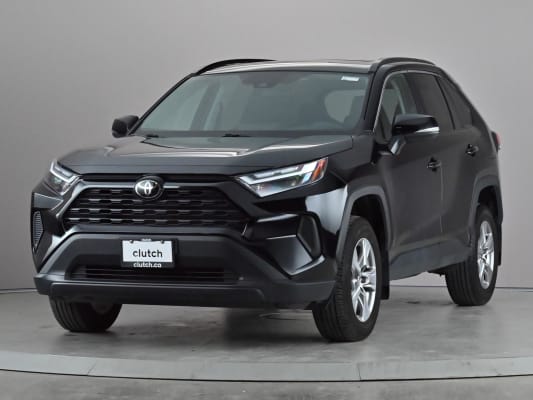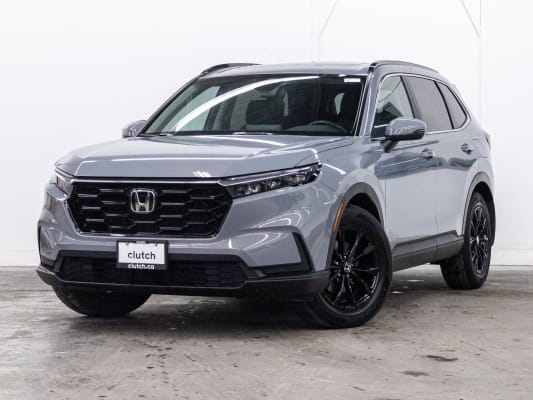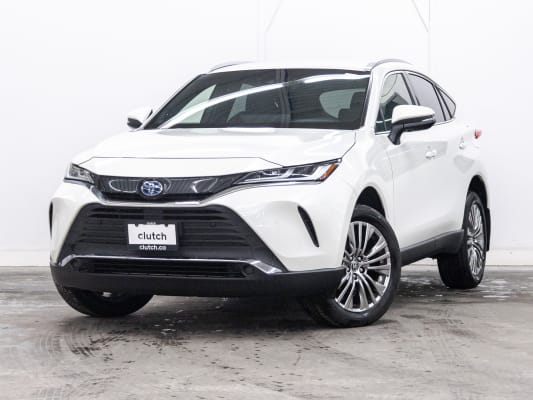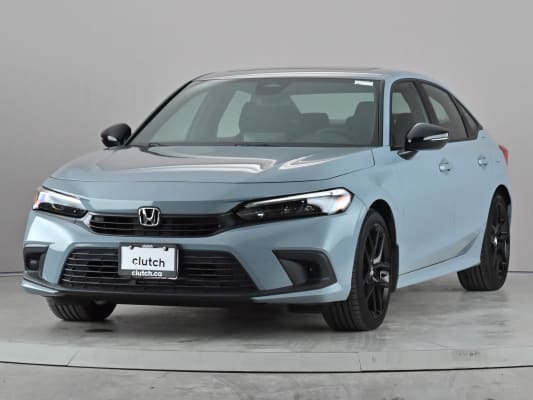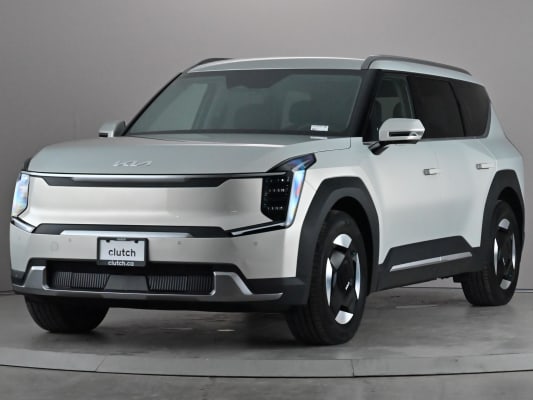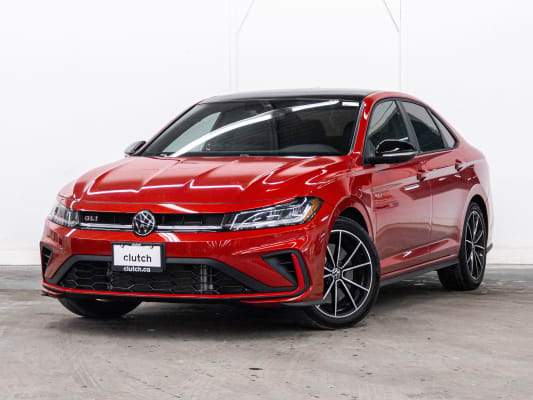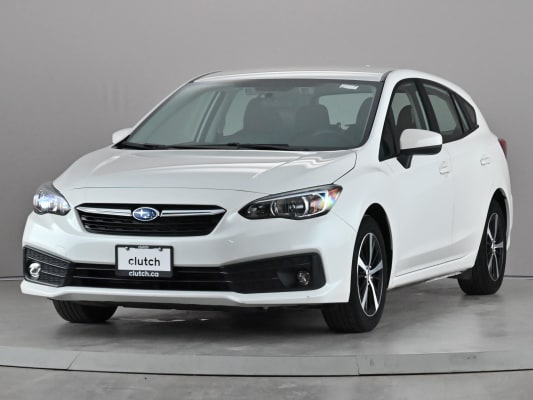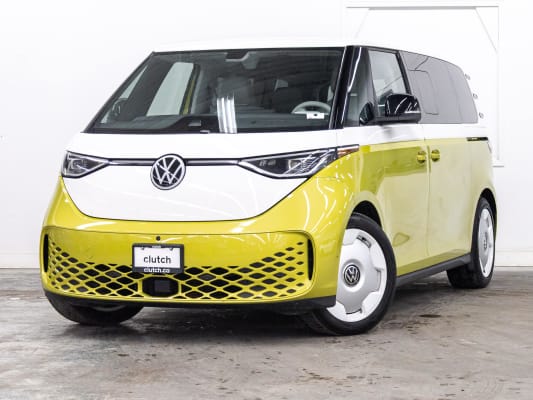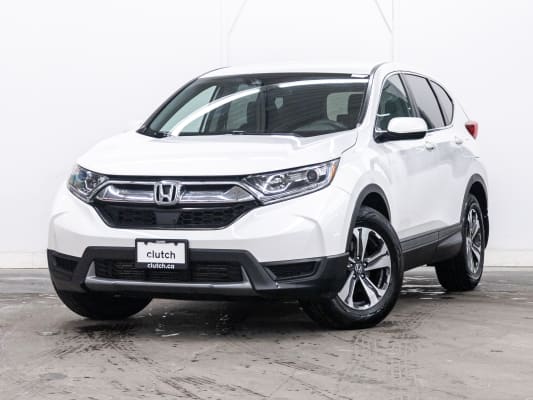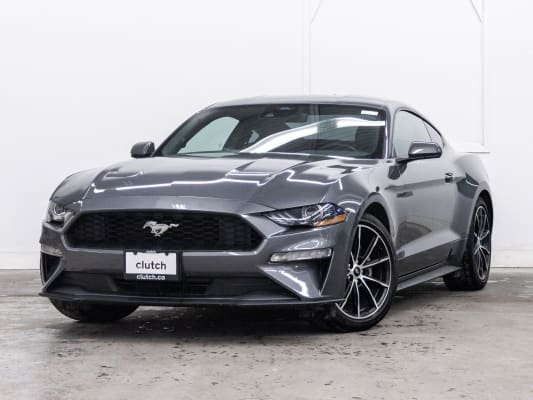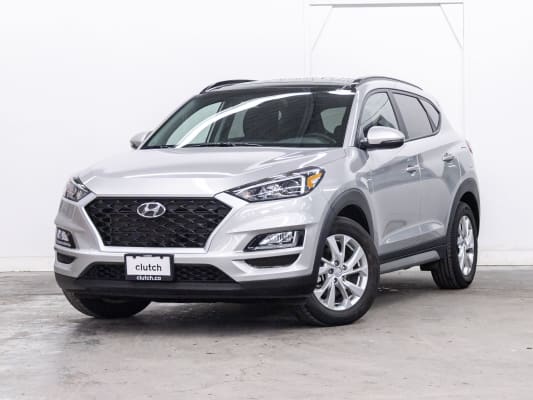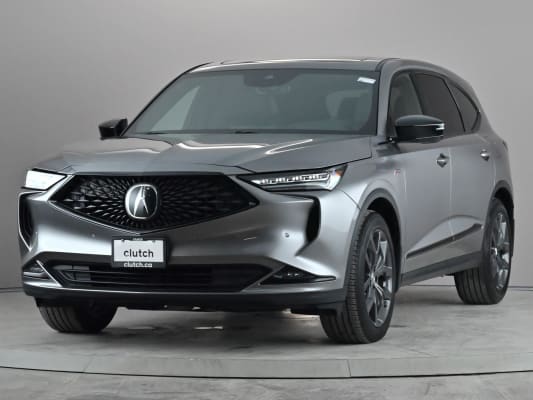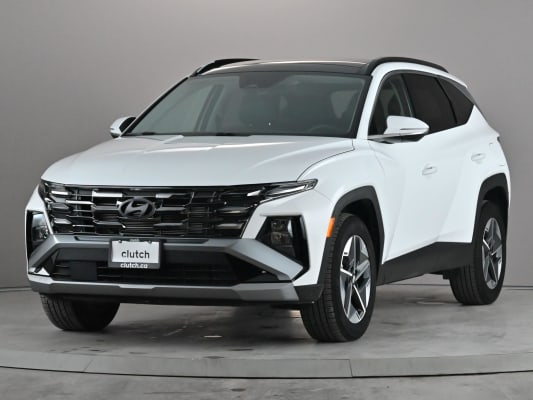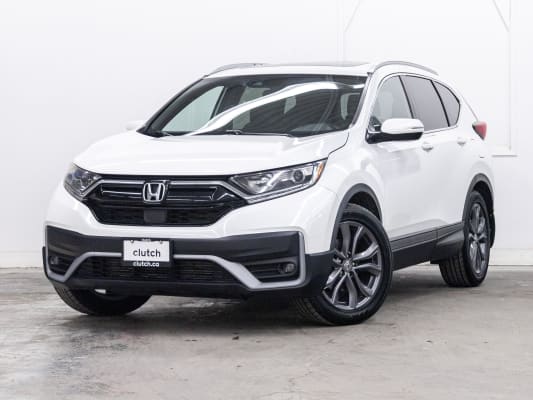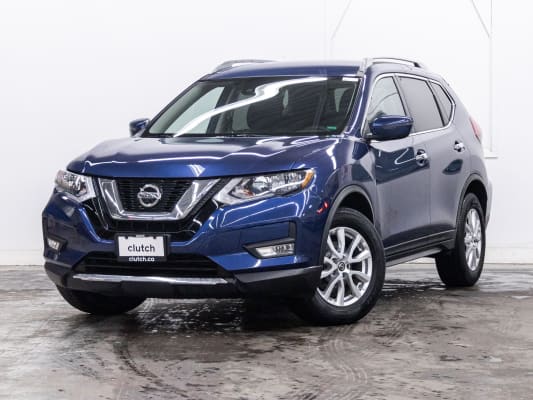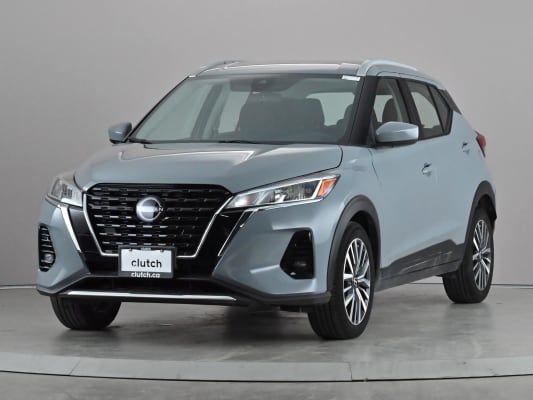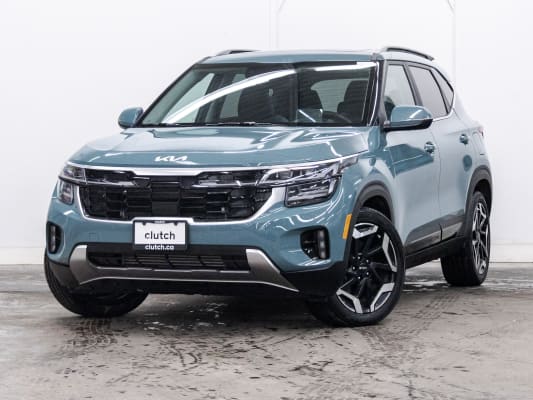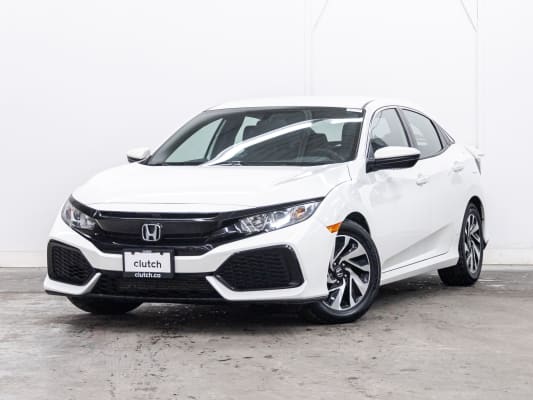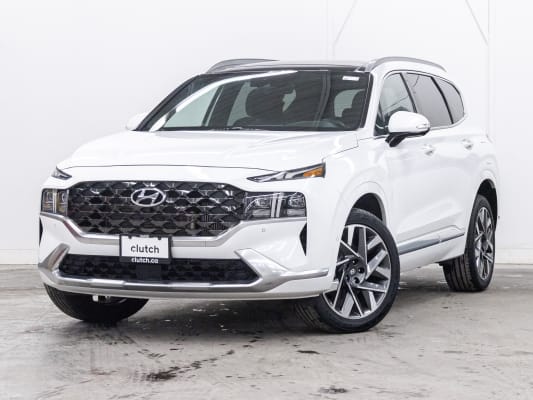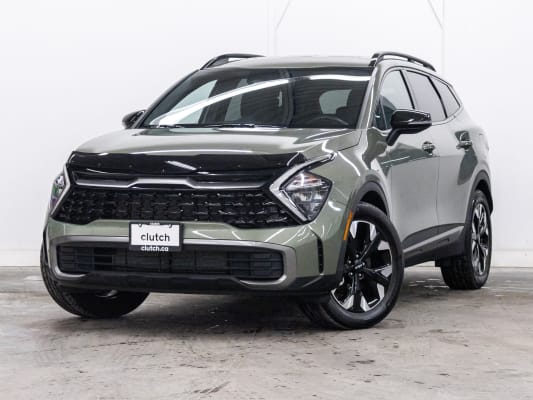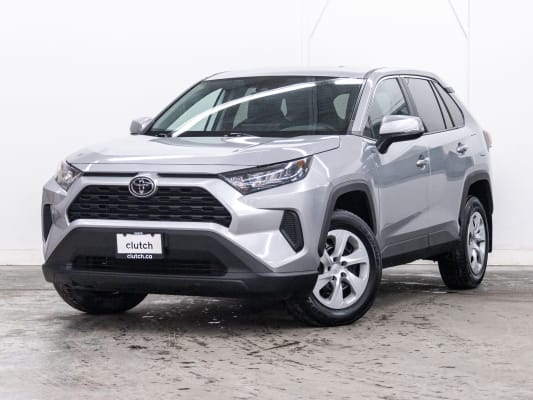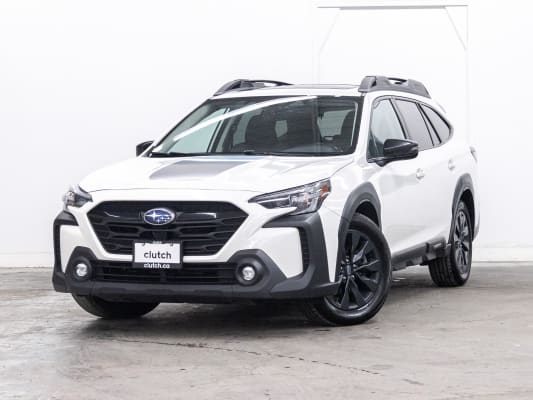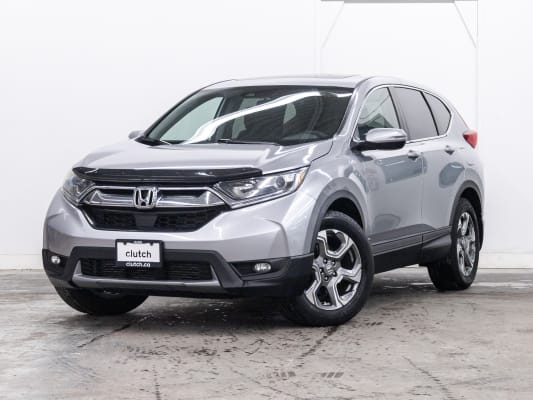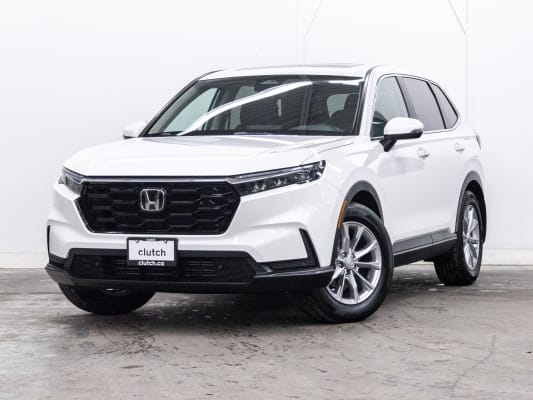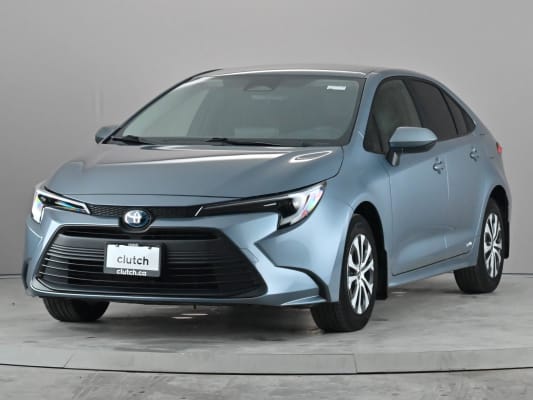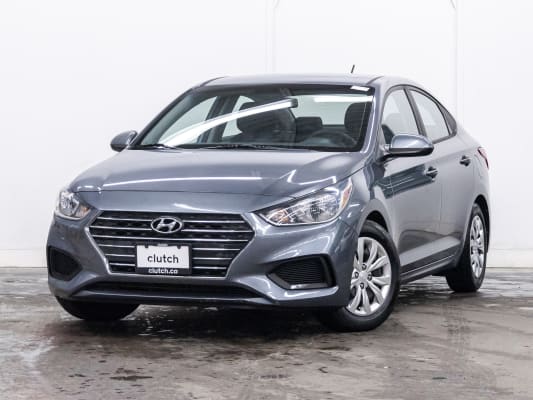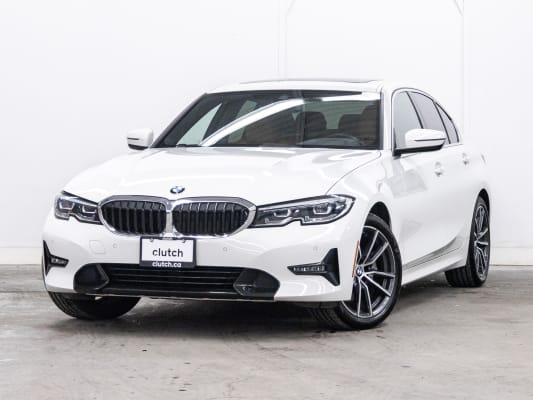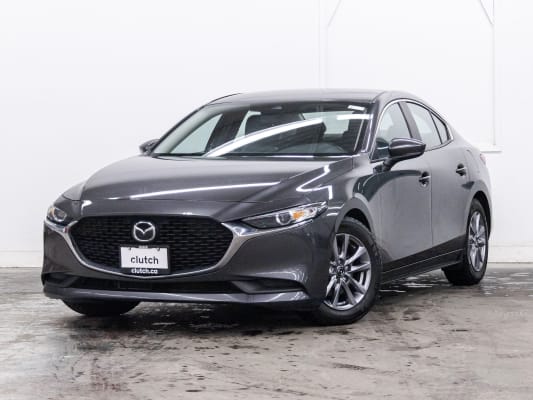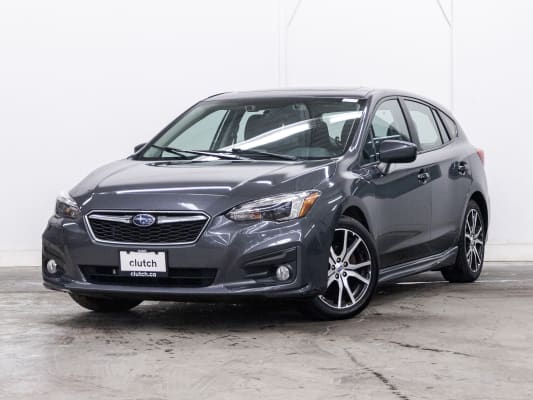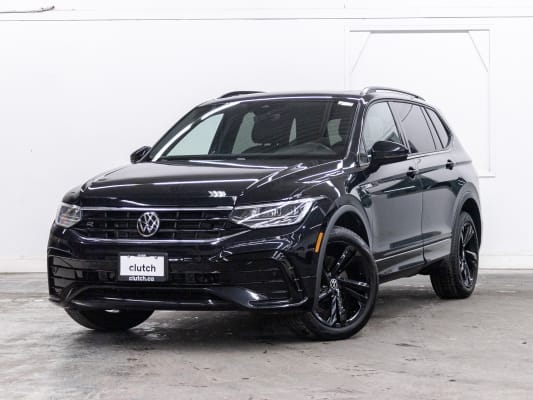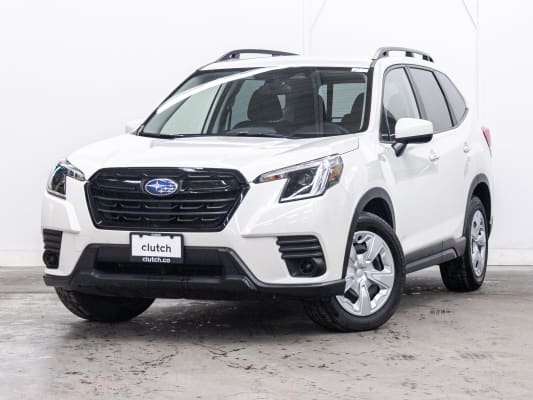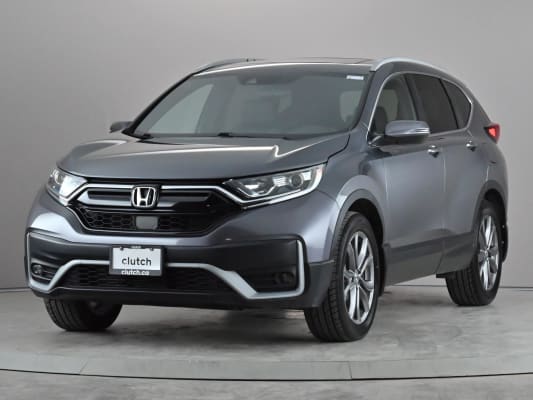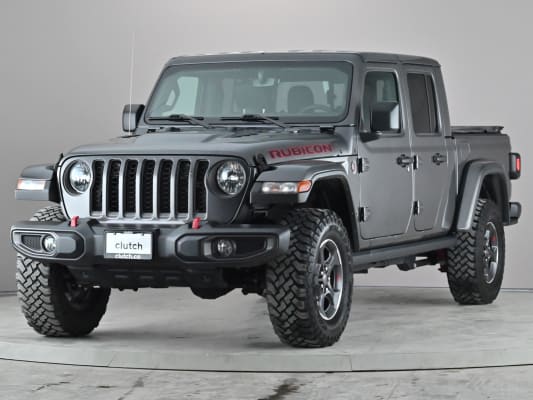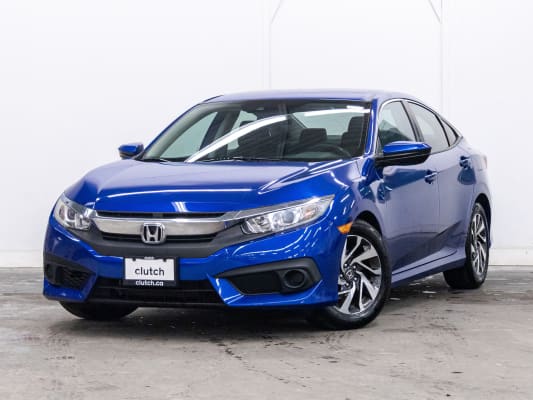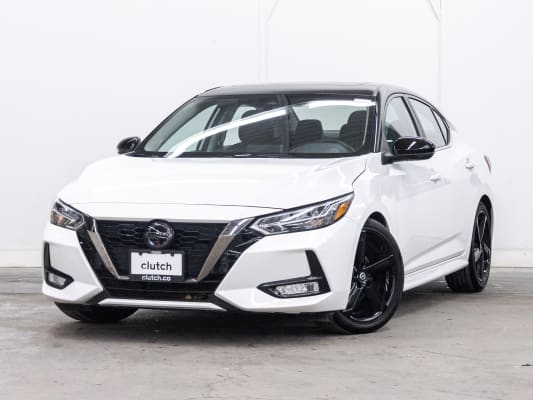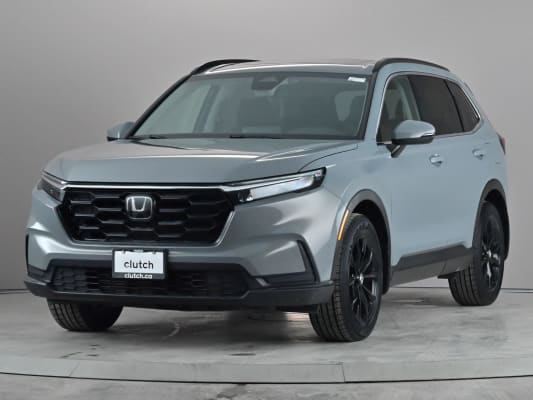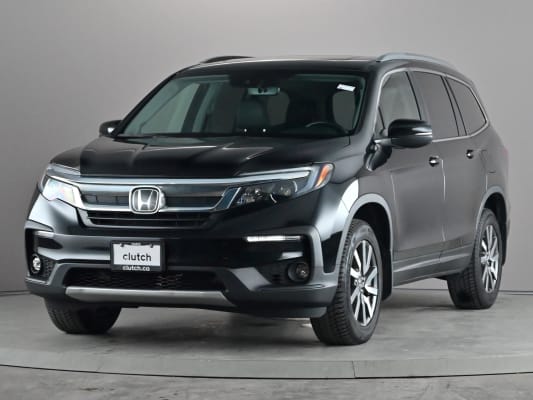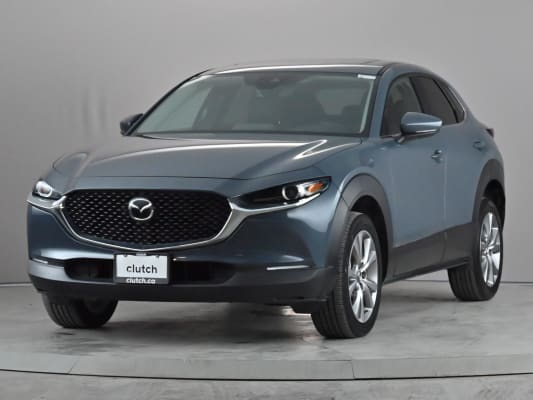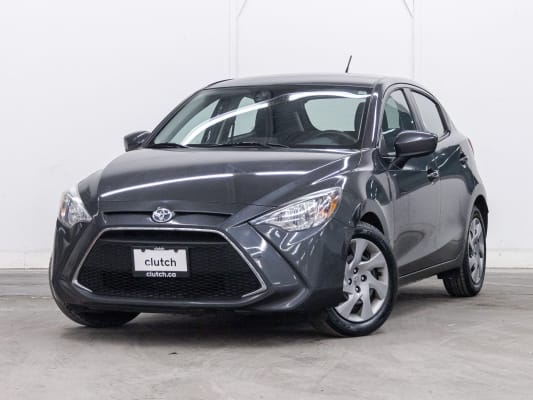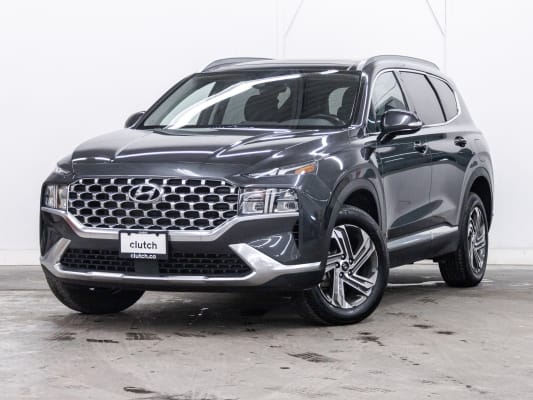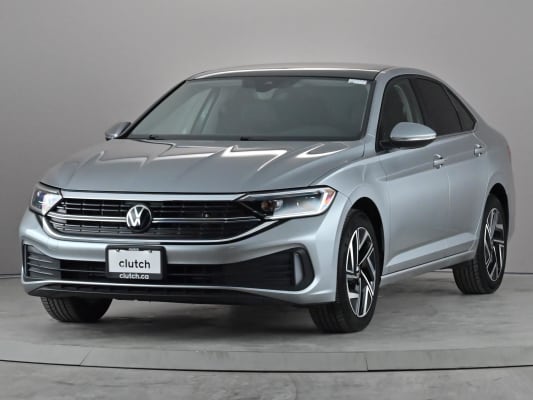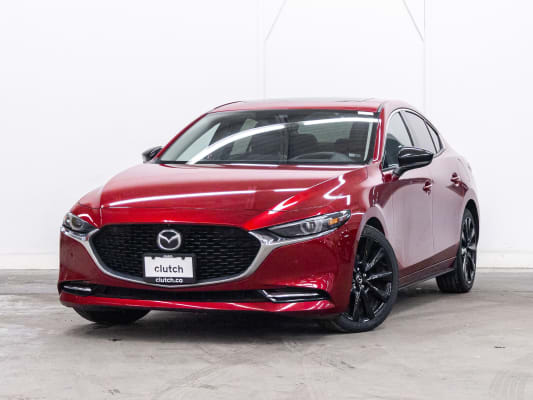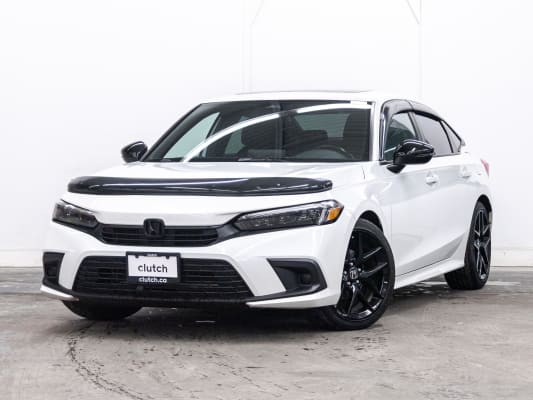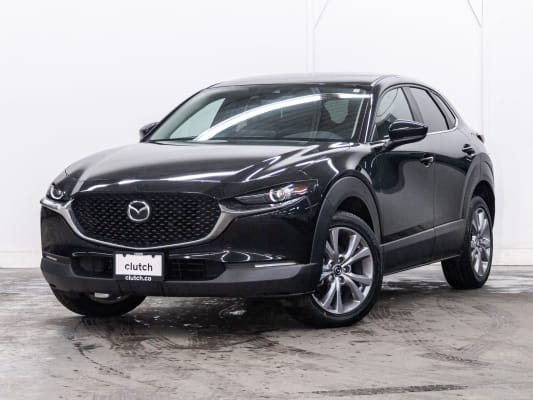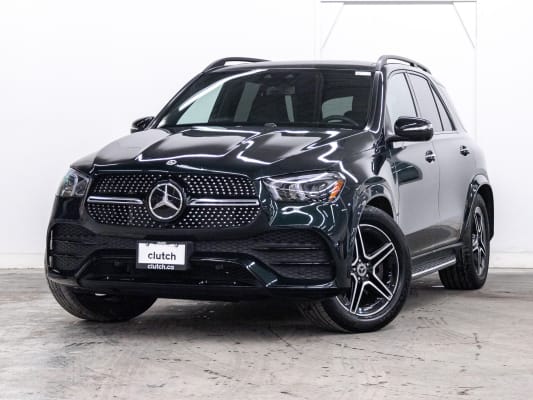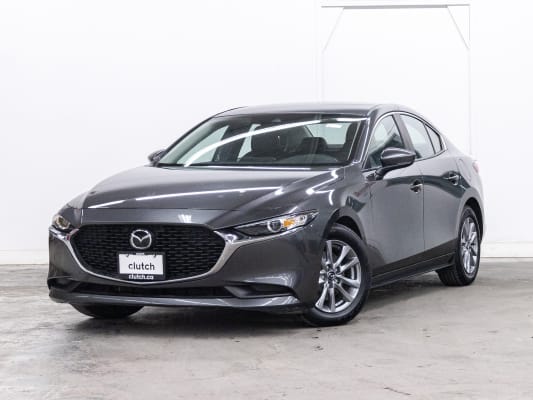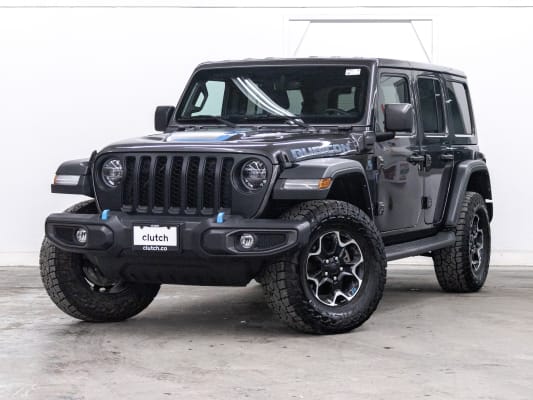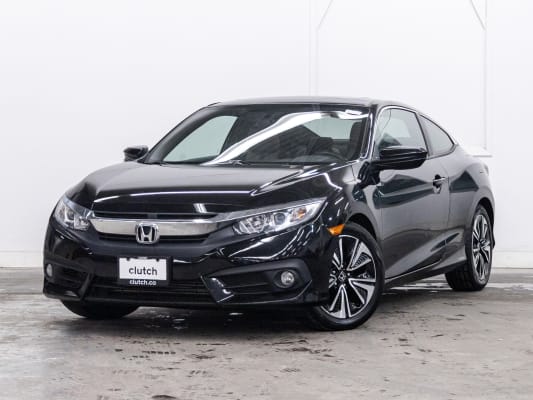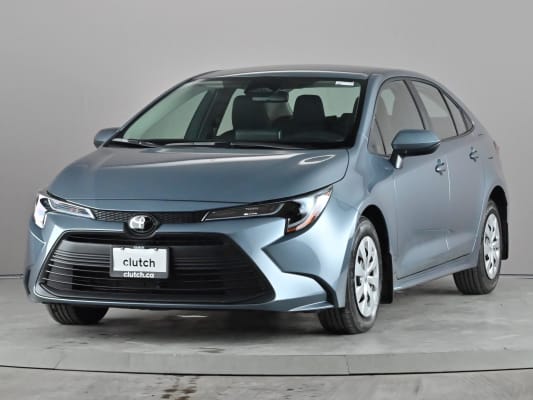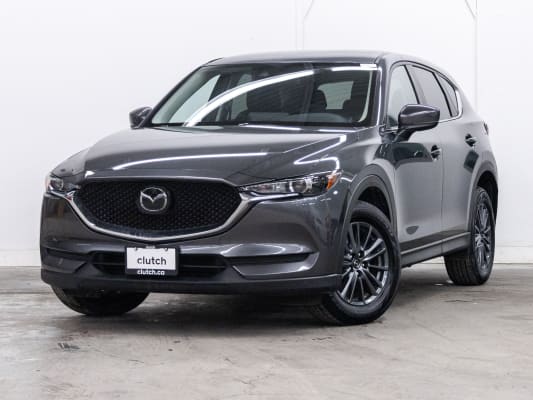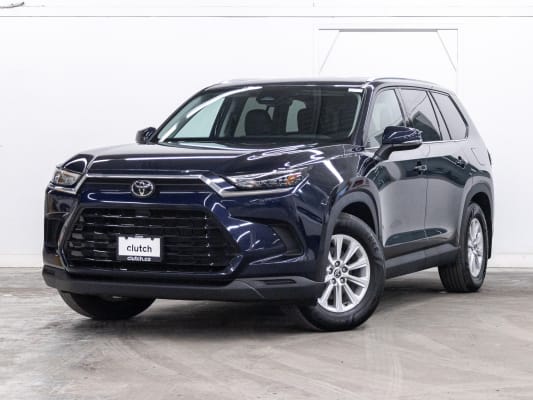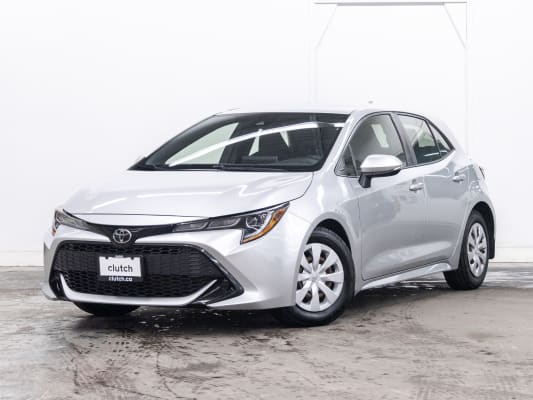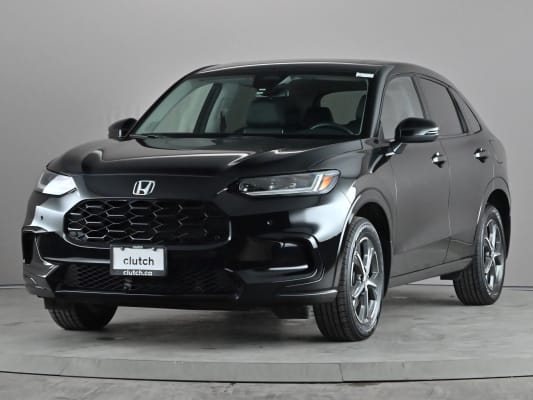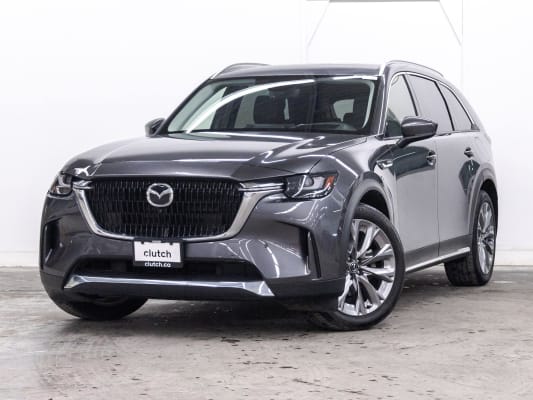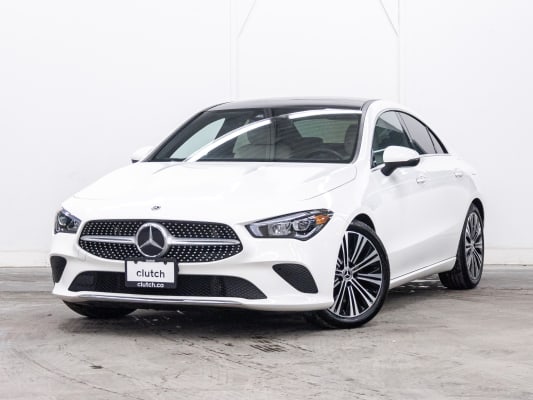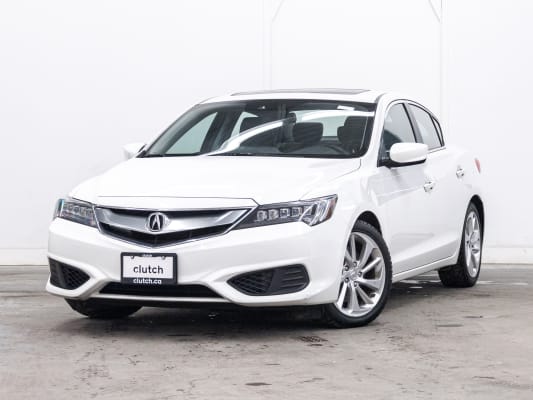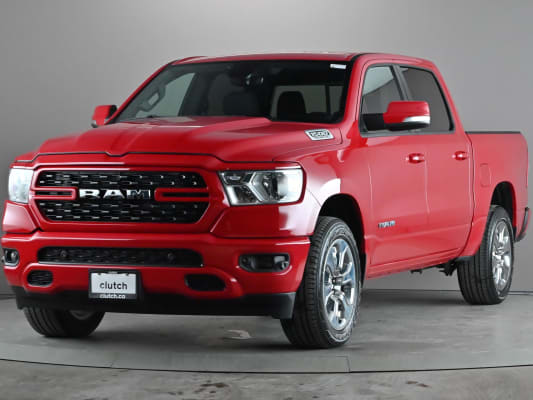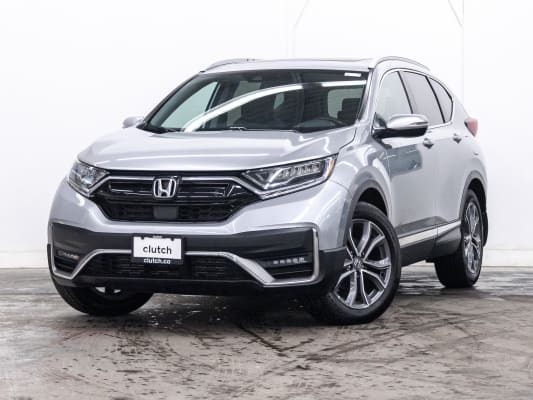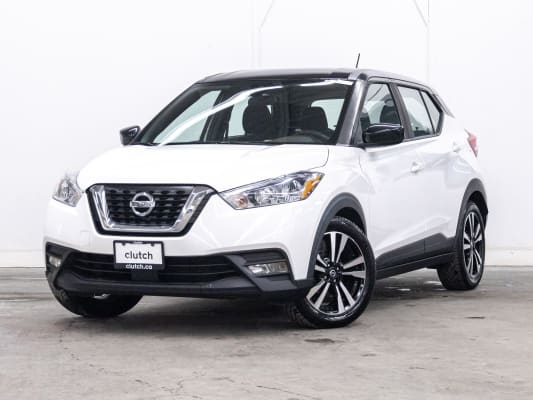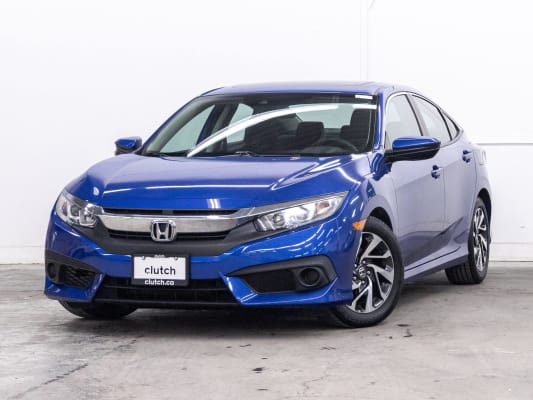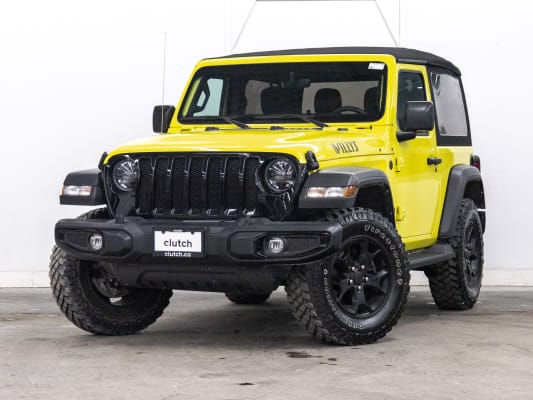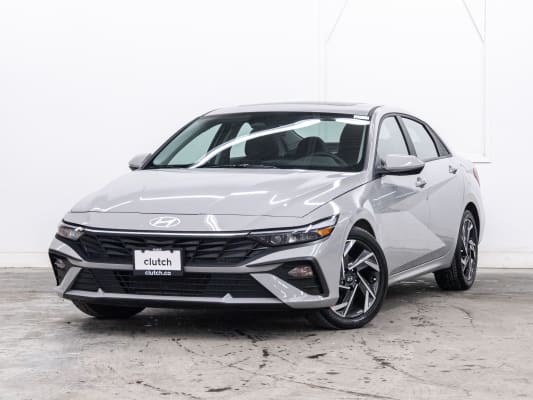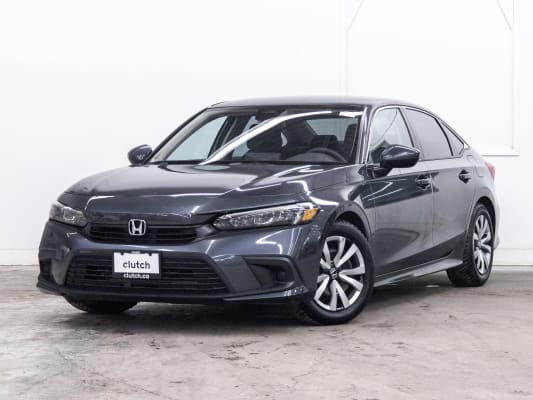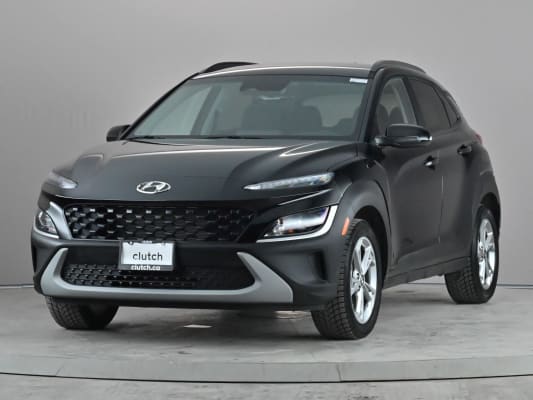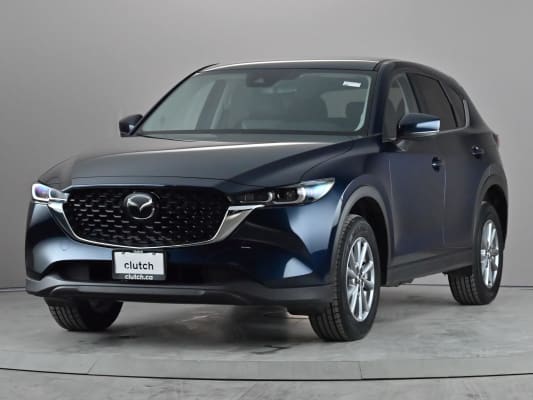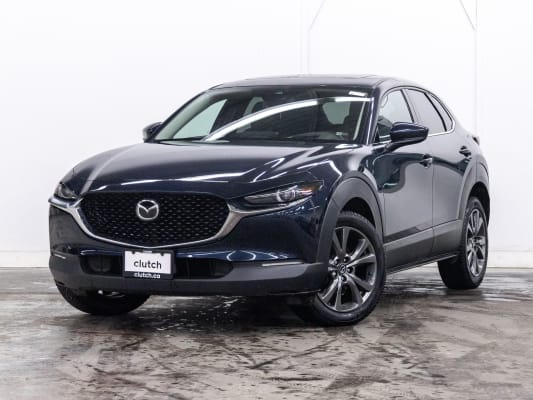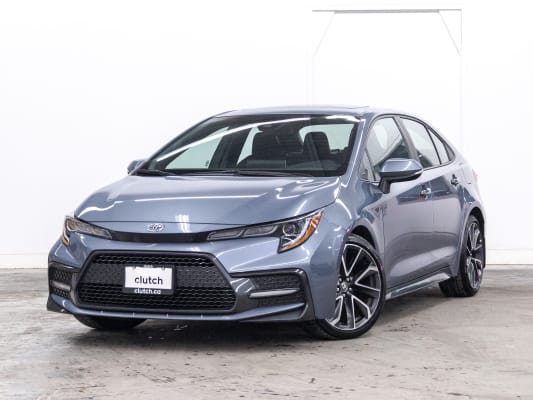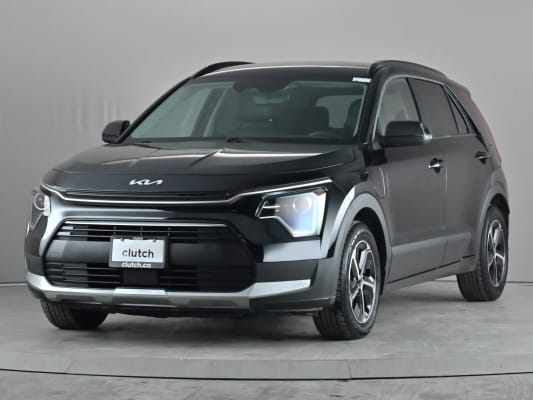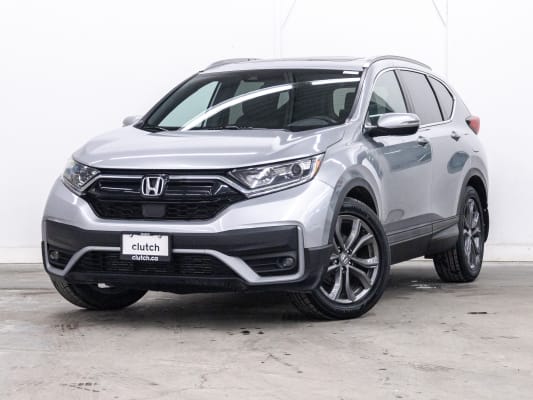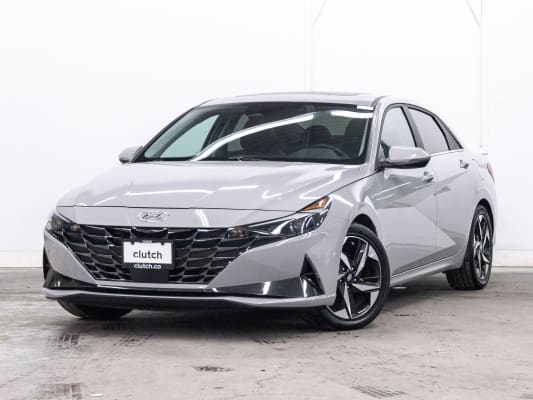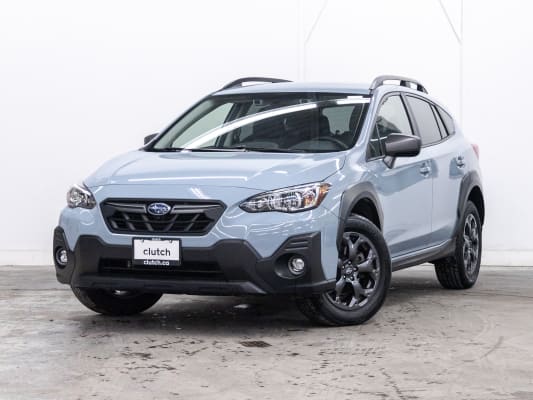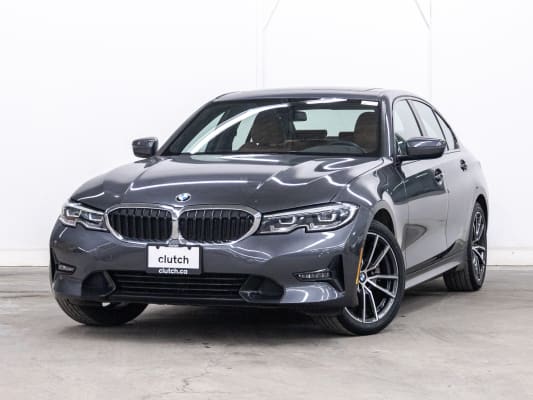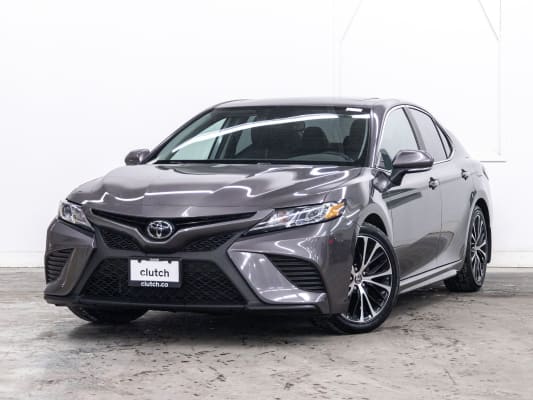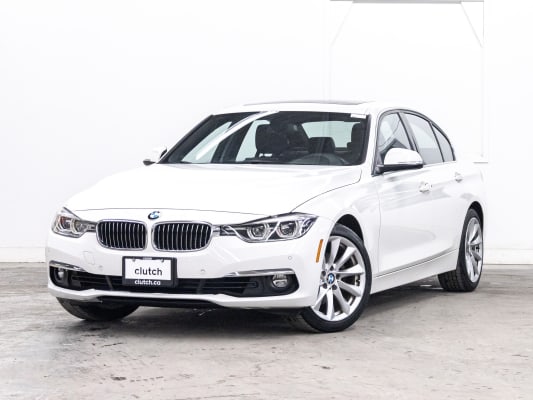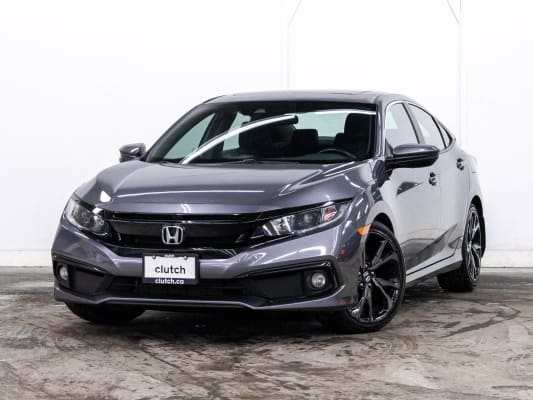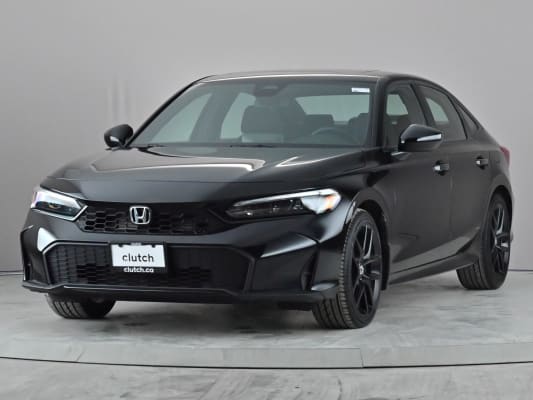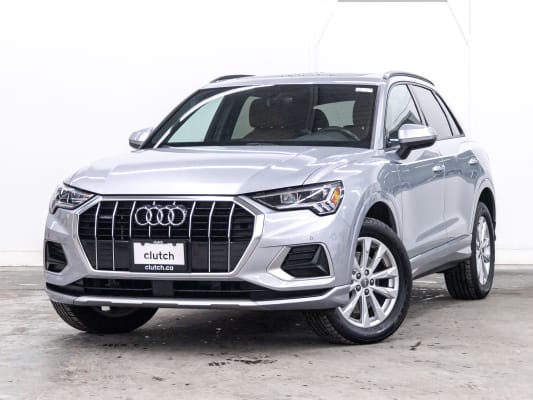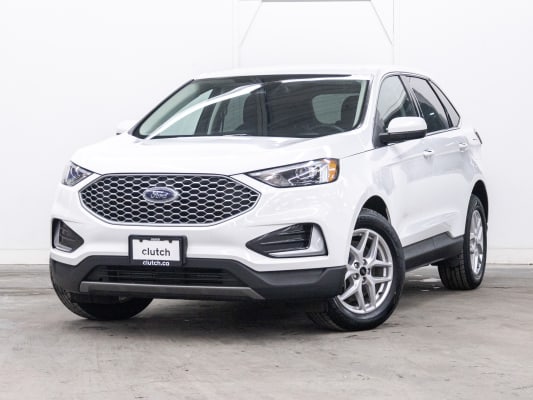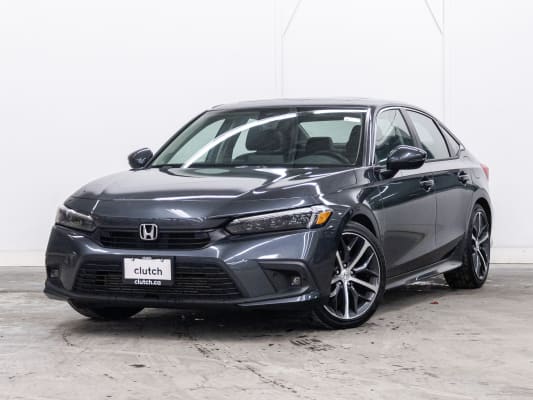Choosing between the Honda Civic and Toyota Corolla is like picking between Tim Hortons and Starbucks — both are familiar fixtures across Canada, each offering dependability in a slightly different flavour. One leans toward no-nonsense value and consistency, the other offers a touch more refinement with its everyday appeal. And just like your coffee choice, the right compact car depends on your taste, lifestyle, and budget.
The Civic and Corolla have been go-to picks for Canadians for decades, known for their reliability, fuel efficiency, and impressive resale value. But now, with evolving tech, powertrain options (including hybrids), and shifting used car prices, comparing them head-to-head is more important than ever — especially when shopping used.
This guide is designed specifically for Canadian buyers considering a used Civic or Corolla, comparing both across the factors that matter most: price range, performance, comfort, fuel economy, winter readiness, and ownership costs. Let’s find out which one brews up the better deal for your needs.

Used Price Range in Canada
When comparing the Honda Civic and Toyota Corolla on the used market, you’ll find both models offer excellent value, but there are some key pricing nuances worth noting — especially across different model years and trims.
Honda Civic (2020–2025 LX trim)
Used Civic prices in Canada generally start around $20,000 for a well-maintained 2020 LX model and climb up to about $28,000 for a newer 2025 version. These prices reflect typical listings from online marketplaces, dealerships, and tools like the Clutch Car Value Calculator. The Civic’s strong brand reputation and consistent demand mean it tends to hold its value well, particularly for higher trims like the Sport or Touring, which can command premium pricing even after a few years.
Complete pricing for each model year: 2020 Honda Civic, 2021 Honda Civic, 2022 Honda Civic, 2023 Honda Civic, 2024 Honda Civic, 2025 Honda Civic
Toyota Corolla (2020–2025 L trim)
On the Corolla side, prices start slightly lower — around $17,500 for a 2020 L trim — and can reach up to $31,000 for a 2025 model. The Corolla’s hybrid variants and top trims like the XSE tend to see the biggest price jumps, but entry-level models remain among the most budget-friendly options in the compact segment.
Complete pricing for each model year: 2020 Toyota Corolla, 2021 Toyota Corolla, 2022 Toyota Corolla, 2023 Toyota Corolla, 2024 Toyota Corolla, 2025 Toyota Corolla
Canadian Buyer Takeaways
- If you’re working with a tighter budget and want a newer model, the Corolla L or LE offers great bang-for-buck value with lower starting prices.
- If you’re after stronger resale value or prefer a sportier driving experience, a lightly used Civic LX or EX could be worth the premium.
- Both vehicles are readily available across the country, but pricing can fluctuate depending on region, mileage, and condition — especially in provinces with harsher winters where rust protection and winter packages are more valuable.
Performance
Neither the Honda Civic nor the Toyota Corolla is designed to be a sports car — but that doesn’t mean they can’t offer a satisfying drive. In fact, for daily commuting and weekend trips, both deliver solid performance with slightly different personalities behind the wheel.

Honda Civic
The Civic strikes a confident balance between efficiency and agility. Most trims, including the popular LX and EX models from 2020 to 2025, come equipped with a 2.0L naturally aspirated 4-cylinder engine making 158 horsepower and 138 lb-ft of torque, paired with a CVT (continuously variable transmission). This setup delivers smooth acceleration and a composed ride, particularly in urban traffic and stop-and-go conditions.
From 2020 to 2024, the Touring trim added a peppier 1.5L turbocharged engine pushing 180 hp and 177 lb-ft of torque, giving the Civic more urgency when merging onto highways or passing. The turbo engine also benefits from slightly better fuel economy, despite the performance boost.
For performance enthusiasts, the Civic Si and Civic Type R offer serious upgrades, but even standard trims handle remarkably well. Thanks to precise steering, a well-tuned suspension, and a stiffer chassis introduced in the 11th-generation redesign (2022+), the Civic has a more planted, responsive feel than most cars in its class. On winding country roads or highway ramps, it delivers a drive that’s more engaging than you’d expect from a compact sedan.

Toyota Corolla
The Corolla plays it safer but remains dependable and comfortable. Most trims from 2020 to 2025 are powered by a 2.0L 4-cylinder engine producing 169 horsepower and 151 lb-ft of torque, also paired with a reliable CVT. While those numbers slightly edge out the Civic’s base engine on paper, in real-world driving, the Corolla’s throttle response feels a bit more muted — better suited for relaxed cruising than sporty maneuvers.
The Corolla Hybrid (available since 2020) combines a 1.8L 4-cylinder engine with an electric motor for a total of 138 hp, focusing on ultra-efficient driving rather than pep. That said, it offers smooth, quiet acceleration in city traffic and delivers exceptional fuel savings, which we’ll dive into later.
While not as sporty as the Civic, the Corolla has a stable ride and soft suspension that absorbs rough pavement well. Steering feel is light — a bonus for city dwellers and newer drivers — but not particularly sharp in corners.
Driving Experience in Canada
- The Civic appeals to drivers who want a bit more feedback and confidence at the wheel. It’s more agile in urban settings and more composed at highway speeds.
- The Corolla excels in comfort and predictability, with an easygoing personality that many Canadian drivers appreciate for daily commutes or long drives across the Prairies or the Maritimes.
Comfort and Interior
While both the Honda Civic and Toyota Corolla are compact cars, neither skimps on comfort — especially in their most recent generations. From cabin materials to rear-seat space and tech features, these two sedans show that affordability doesn’t have to mean bare-bones.

Honda Civic
Step inside a used Honda Civic from 2020 to 2025 and you’ll notice an interior that feels clean, modern, and more upscale than its price tag suggests. The 2022 redesign in particular ushered in a minimalist dashboard layout with slim air vents and user-friendly controls — a layout inspired by European luxury cars.
- Seating & Materials: The Civic offers well-bolstered, supportive seats with standard heated front seats — a must-have for Canadian winters. Materials improve as you move up trims: base LX models feature durable cloth, while the Touring trim adds leather upholstery and soft-touch surfaces throughout.
- Space: Front-seat passengers enjoy excellent legroom, and in the rear, 950 mm (37.4 in) of legroom makes the Civic one of the roomiest compact sedans in the segment. Headroom is generous too, even for taller passengers.
- Noise & Ride Comfort: The Civic’s newer models are noticeably quieter, thanks to improved sound insulation and an acoustic windshield. Ride quality is firm but refined — perfect for city potholes and highway cruising alike.
- Trunk & Practicality: The Civic Sedan offers 419 litres of trunk space, while the Hatchback variant provides even more cargo flexibility with up to 693 litres behind the rear seats.
Whether you're hauling hockey bags or fitting in child seats, the Civic offers thoughtful space without feeling cramped.

Toyota Corolla
The Corolla cabin emphasizes simplicity and usability, with a design that feels slightly more conservative than the Civic’s, but no less practical.
- Seating & Materials: Most trims come with supportive cloth seating, while higher trims like the XSE add faux leather and power driver’s seats. Heated front seats are available but often require stepping up from the base L trim. A heated steering wheel is also available on select trims — a welcome touch in colder provinces.
- Space: Rear seat legroom sits at 883 mm (34.8 in) — fine for short trips or younger passengers, but tighter for adults, especially compared to the Civic. Headroom is nearly identical between the two at about 942 mm.
- Noise & Ride Comfort: The Corolla’s softer suspension tuning results in a smoother ride over rough pavement. Cabin noise is well-controlled, though not as hushed as the Civic at highway speeds.
- Trunk & Practicality: The Corolla Sedan offers 371 litres of trunk space — enough for groceries or a weekend bag, but behind the Civic in outright volume. The Hatchback version adds flexibility, but rear seat legroom drops further.
Interior Verdict
- If you prioritize rear-seat space, trunk capacity, and a more premium feel, the Civic stands out — especially from 2022 onward.
- The Corolla, while a bit more compact inside, delivers a softer, more comfort-oriented experience with user-friendly controls and excellent build quality.

Fuel Economy
Despite the removal of the Carbon Tax affecting gas prices, fuel economy is still a top priority for used car shoppers. Thankfully, both the Honda Civic and Toyota Corolla offer wallet-friendly fuel efficiency — but they take slightly different approaches, especially when you factor in hybrid options.
Honda Civic Fuel Economy
The Civic has long been a fuel-efficiency standout, and the latest models continue that trend. Ratings vary slightly depending on the trim and engine, but here’s what you can generally expect from 2020 to 2025 models:
- 2.0L engine (LX/Sport trims)
- City: 7.4–7.7 L/100 km
- Highway: 5.8–6.0 L/100 km
- Combined: 6.7–6.9 L/100 km
- City: 7.4–7.7 L/100 km
- 1.5L turbo engine (Touring trim, 2020–2024):
- City: 7.6 L/100 km
- Highway: 6.1 L/100 km
- Combined: 6.9 L/100 km
- City: 7.6 L/100 km
- 2025 Civic Hybrid (new for 2025):
- Combined: Estimated at 4.9 L/100 km — significantly more efficient, though Canadian figures are pending at time of writing.
- Combined: Estimated at 4.9 L/100 km — significantly more efficient, though Canadian figures are pending at time of writing.
These numbers make the Civic a great option for long-distance commuters or anyone dealing with frequent stop-and-go city traffic. Even without a hybrid, the 2.0L engine delivers solid efficiency, and fuel-saving tech like Econ mode helps stretch each tank.
Toyota Corolla Fuel Economy
The Corolla has long been one of the most fuel-efficient gas-only compact sedans in Canada, and the availability of a hybrid variant takes it even further.
- 2.0L gas engine (L/LE/SE trims):
- City: 7.4 L/100 km
- Highway: 5.7 L/100 km
- Combined: 6.7 L/100 km
- City: 7.4 L/100 km
- 1.8L Hybrid (LE/SE/XSE trims):
- City: 4.4–4.7 L/100 km
- Highway: 5.1 L/100 km
- Combined: 4.7–4.9 L/100 km
- AWD Hybrid trims: Slight bump to around 4.9 combined
- City: 4.4–4.7 L/100 km
In real-world use, many Corolla Hybrid owners report getting even better mileage than the official ratings, particularly in the city. The hybrid also runs on regular 87-octane fuel, keeping operating costs low.
Efficiency Takeaways for Canadian Drivers
- Both sedans are very efficient in gas-only form — especially on the highway.
- The Civic’s fuel economy is slightly more consistent across trims and engines, and its hybrid joins the game in 2025.
- The Corolla Hybrid, available since 2020, is the fuel-efficiency champ — particularly if you’re clocking a lot of city kilometres or want AWD without sacrificing MPG.
If minimizing fuel costs is a top priority — especially for urban driving or rideshare use — the Corolla Hybrid is a clear winner. But for drivers who want a balance of performance and efficiency, the Civic (particularly with the 1.5L turbo) remains a very smart choice.
Reliability and Maintenance
When it comes to buying used, reliability isn’t just important — it’s essential. The good news? Both the Honda Civic and Toyota Corolla have earned near-legendary status in Canada for their dependability. But let’s dig into how they stack up based on expert scores, common issues, and long-term ownership expectations.
Honda Civic
The Civic consistently ranks near the top of the compact car class for durability and long-term value. According to J.D. Power’s 2025 U.S. Vehicle Dependability Study, the Civic earned a solid 80/100 for quality and reliability.
- Strengths: Civic owners frequently praise the car’s long-lasting engine, predictable maintenance needs, and low cost of ownership. The 2.0L engine is particularly robust and has fewer known issues compared to some older turbocharged variants.
- Consumer Reports recommends the Civic across multiple years, citing its strong build quality, nimble handling, and ease of maintenance.
From 2020–2025, the Civic has seen minimal widespread mechanical issues, and with proper maintenance, many models can easily last 300,000 km or more.
Toyota Corolla
If reliability were an Olympic sport, the Corolla would be a perennial podium finisher. The 2022 J.D. Power rating gives it an even higher score than the Civic: 85/100, making it one of the top-ranked compact cars in the study.
- Strengths: Toyota’s reputation for bulletproof drivetrains is well-earned. The 2.0L engine and CVT combo has proven durable over time, and the Corolla Hybrid uses the same proven tech as the Prius — a global benchmark for hybrid reliability.
- Consumer Reports gives the Corolla consistently high scores for predicted reliability, and notes the 2022–2025 models are expected to be “much more reliable than the average new car.”
- Common issues? Few and far between. The occasional infotainment quirk or trim rattle has been reported, but nothing major. The Corolla’s hybrid system is also low-maintenance, with regenerative braking reducing brake wear and no need to plug in.
Verdict
- The Corolla has a slight edge in official reliability scores and boasts a longer track record with hybrid technology.
- The Civic is still a very dependable choice, especially for those who want a more engaging drive without compromising longevity.
If absolute peace of mind is your top priority, the Corolla is tough to beat. But if you want great reliability with a touch more driving fun, the Civic is a proven performer.

Features and Technology
Today’s compact cars are smarter and more connected than ever — and even on the used market, both the Honda Civic and Toyota Corolla bring a strong list of standard and available tech. Whether you're streaming a playlist during a cross-country drive or relying on the latest safety tech in a snowstorm, here’s how they compare where it counts.

Honda Civic
The Civic has steadily evolved into one of the most tech-forward vehicles in the segment, especially in the 2022+ generation. Even base models include key connectivity and safety features that were once reserved for higher trims.
- Infotainment & Connectivity:
- 2020–2021 LX models feature a 7-inch touchscreen, Apple CarPlay, Android Auto, Bluetooth, and a 4-speaker audio system.
- 2022+ models continue the same screen size in the LX but improve system speed and clarity.
- Touring trims from 2022 onward bump things up with a 9-inch touchscreen, Bose 12-speaker audio, wireless Apple CarPlay/Android Auto, and built-in navigation.
- From 2025, select models now feature Google Built-In, including Google Maps and Assistant.
- 2020–2021 LX models feature a 7-inch touchscreen, Apple CarPlay, Android Auto, Bluetooth, and a 4-speaker audio system.
- Convenience Features:
- Remote engine start, proximity key entry, and dual-zone climate control are available starting on EX or Sport trims and above.
- A wireless smartphone charger, heated steering wheel, and rear parking sensors are included on Touring.
- Remote engine start, proximity key entry, and dual-zone climate control are available starting on EX or Sport trims and above.
- Safety Tech: Every trim gets the Honda Sensing suite, which includes:
- Forward collision warning and mitigation
- Lane-keep assist and adaptive cruise control
- Traffic sign recognition, blind-spot monitoring, and low-speed traffic jam assist (on newer models)
- Forward collision warning and mitigation

Toyota Corolla
The Corolla doesn’t chase flash but focuses on intuitive, reliable tech. Its systems are straightforward and easy to use, and hybrid models offer strong standard feature sets.
- Infotainment & Connectivity:
- Most trims come with an 8-inch touchscreen and wireless Apple CarPlay/Android Auto — even on lower trims, which is a win over the Civic’s wired setup in many models.
- The XSE trim introduces a larger 10.5-inch display and enhanced Toyota Multimedia features.
- Toyota's voice recognition works well for basic commands, but more advanced navigation or remote services often require a subscription.
- Most trims come with an 8-inch touchscreen and wireless Apple CarPlay/Android Auto — even on lower trims, which is a win over the Civic’s wired setup in many models.
- Convenience Features:
- Heated front seats are standard on most trims from LE upward, but manual climate control and a non-heated steering wheel on base models can feel a bit sparse for Canadian winters.
- Wireless charging, power driver’s seat, and auto-dimming mirrors are included on SE Upgrade or XSE trims.
- Heated front seats are standard on most trims from LE upward, but manual climate control and a non-heated steering wheel on base models can feel a bit sparse for Canadian winters.
- Safety Tech: Every Corolla comes with Toyota Safety Sense 3.0, which includes:
- Pre-collision warning with pedestrian detection
- Lane departure alert with steering assist
- Adaptive cruise control, lane tracing assist
- Blind-spot monitoring with rear cross-traffic alert (available on LE and higher)
- Pre-collision warning with pedestrian detection
Technology Takeaways
- If you want tech without needing to upgrade, the Corolla delivers solid value — especially with wireless smartphone integration on lower trims.
- If you’re after premium audio, larger screens, or Google Built-In functionality, the Civic Touring takes the win for tech lovers.
- In terms of safety, both are loaded with advanced features and offer peace of mind — but Honda’s suite tends to feel more refined in real-world use, especially with smoother adaptive cruise and lane assist functions.
{{inlinecta2}}
Ownership Costs
Beyond the sticker price, smart car buyers know to look at the full cost of ownership — including insurance, depreciation, maintenance, and how easy (or frustrating) it is to keep the vehicle on the road. Let’s take a closer look at how the Honda Civic and Toyota Corolla stack up long term.
Insurance Costs in Canada
Insurance premiums can vary significantly by province, driver history, and vehicle trim. That said:
- The Toyota Corolla typically falls into a slightly lower insurance bracket compared to the Civic. This is thanks to its lower repair costs and strong safety ratings.
- The Civic, while still affordable to insure, is sometimes priced a bit higher due to higher theft rates in some areas and sportier trims (like the Si and Type R) increasing the model’s average risk profile.
For most Canadian drivers, expect similar premiums — though if you’re a first-time buyer or young driver, the Corolla may shave a few dollars off your monthly rate.
Depreciation
- The Honda Civic is known for retaining its value. It regularly ranks among the top compact cars for resale, especially higher trims like the EX or Touring. Demand remains high even for older models, which helps keep depreciation in check.
- The Toyota Corolla also depreciates slowly — especially the hybrid trims, which have gained traction with used buyers looking for fuel efficiency and AWD capability.
In terms of resale, both are safe bets. The Civic may have a slight edge, especially in provinces like Ontario or B.C., where it's long been a top seller.
Maintenance and Repair
- Routine maintenance is low-cost for both vehicles. Oil changes, brake pads, and filters are widely available and affordable at any Canadian dealership or local mechanic.
- Honda Civic parts are common and inexpensive, but the turbocharged trims may have slightly higher repair costs if issues arise (though these are rare).
- Toyota Corolla repairs tend to be even less frequent, especially on hybrid models. The hybrid system requires little to no extra maintenance for the first 160,000 km, and regenerative braking reduces wear on brake pads.
Both models score high for low total cost of ownership over five years. If you’re the kind of driver who plans to hold onto your vehicle past the 200,000 km mark, either car will serve you well — but the Corolla edges ahead with slightly fewer reported repairs overall.
Verdict: Which One Is Right for You?
At the end of the day, choosing between the Honda Civic and Toyota Corolla is less about picking a “better” car and more about aligning with your priorities as a driver. These two compact champions each bring a lot to the table — but they appeal to slightly different types of Canadian buyers.

Choose the Honda Civic if you:
- Want a more engaging driving experience, with sharper handling and optional turbocharged power
- Prioritize rear-seat space, cargo flexibility, or a more refined cabin
- Appreciate modern tech features, like Google Built-In, premium audio, and larger infotainment screens
- Care about resale value and long-term demand when it’s time to sell
The Civic is the right pick for commuters who value comfort and responsiveness, small families needing more space, or anyone who wants a compact car that feels a notch above in terms of design and drive quality.

Choose the Toyota Corolla if you:
- Want the lowest operating costs, including fuel savings from hybrid options
- Need all-wheel drive in a compact package (available with the Corolla Hybrid AWD)
- Prefer a car that’s simple, predictable, and low-maintenance
- Want solid tech and safety features, even in lower trims
The Corolla is ideal for cost-conscious buyers, urban drivers looking for unbeatable fuel economy, and anyone who values a fuss-free ownership experience that just works — year after year, winter after winter.
Bottom Line
Whether you go with the Civic’s refined sportiness or the Corolla’s pragmatic reliability, you’re getting a vehicle with a proven track record in Canada. Both are smart, durable investments — and the right one for you depends on what matters most at this stage in your driving life.

Save Thousands on a Used Honda Civic or Toyota Corolla at Clutch
So, which comes out on top in the Honda Civic vs Toyota Corolla head-to-head battle? It really depends on your wants and needs, as the Toyota Corolla’s lower price allows you to move into upper trims and packages that add features to put it on par with the Civic. So, it really all comes down to your personal preference.
You can get even more value by purchasing a quality used Toyota Corolla or used Honda Civic from Clutch, Canada’s premier online automotive retailer. You can be confident you’ll get the highest-quality pre-owned compact car from Clutch.
We also toss in a 10-day or 750-km test-own period. If you don’t love your used Honda Civic or Toyota Corolla from Clutch within the test-own period, you can exchange or return it, no questions asked. Plus, the Clutch experience is 100% online, so there’s no need to set foot in a dealership. We’ll even drop the vehicle off for you.
Do you have a trade-in vehicle? Clutch takes trades, and you can get a firm offer on your trade-in 100% online.
Need financing? Clutch can connect you with financing after filling out our online financing application. It doesn’t get much easier than this.


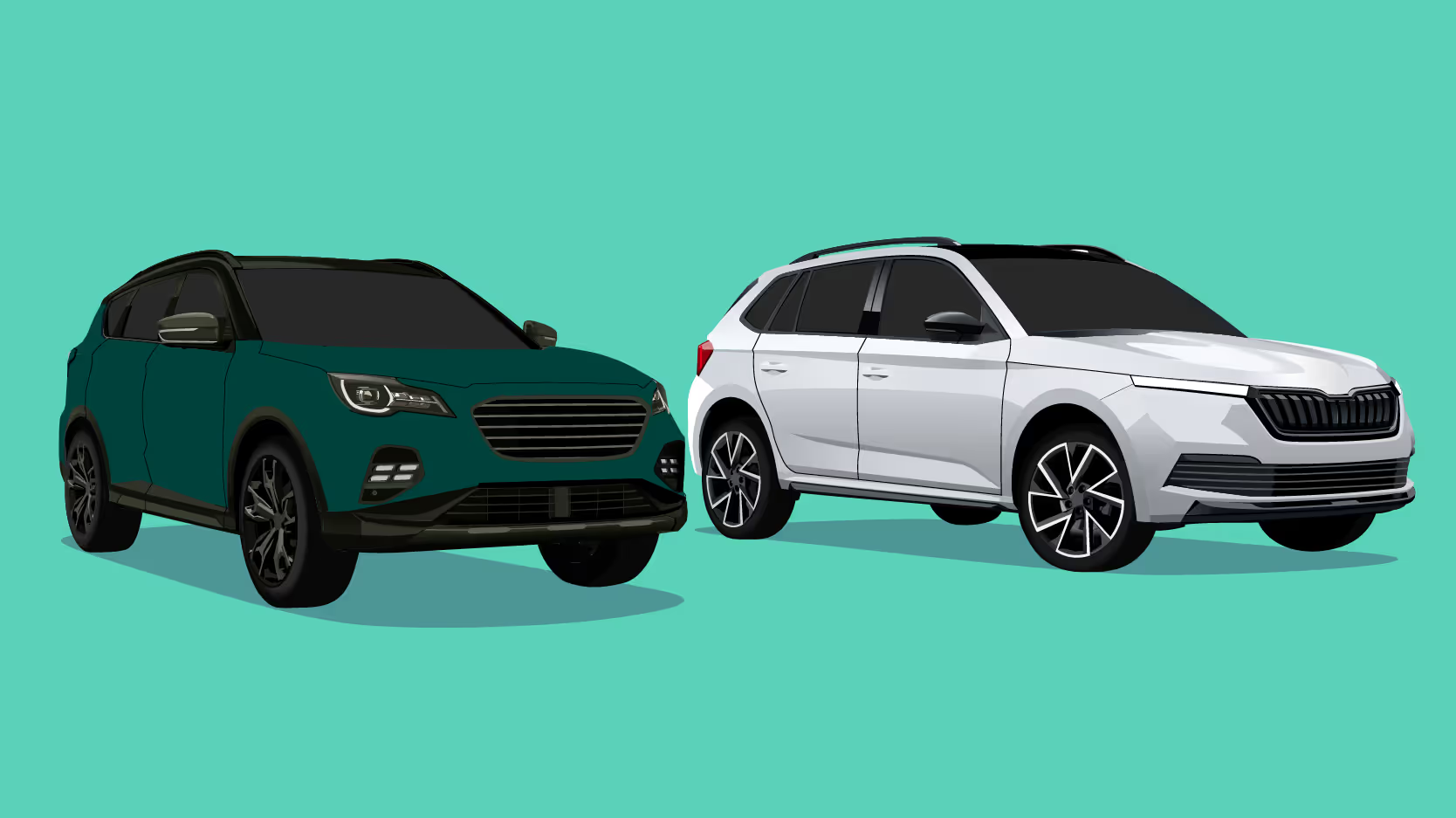

_Thumbnail.avif)





